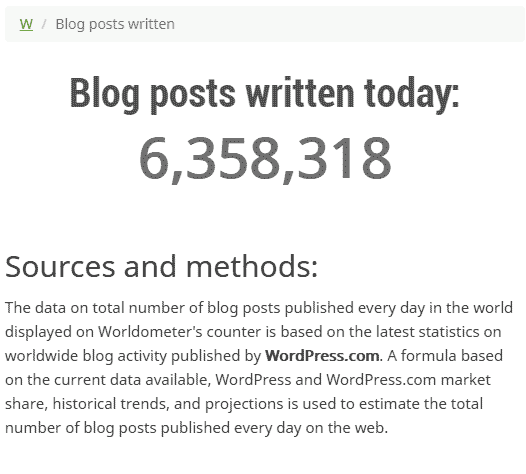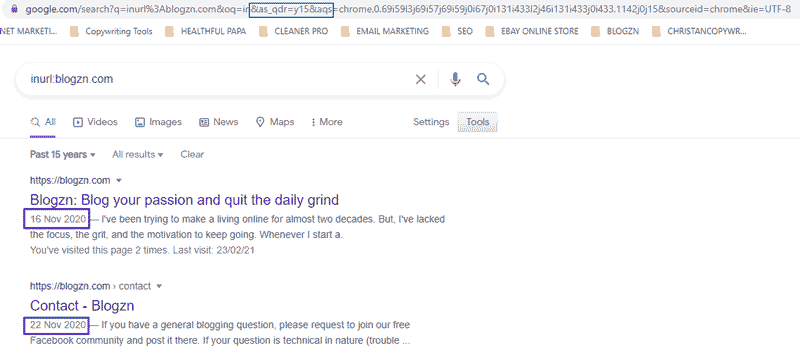Anyone can publish on the internet for free.
Yes, for free.
There are sites like Medium, Blogger, WordPress, and many more to let you write your thoughts for the world to see on the internet.
And the cost of having your blog on the internet is not expensive anyway. Why not start a blog today and make money on autopilot?
A domain can cost you about $9 a year, and hosting can set you back about the same price a month.
However, you can score a free domain from Bluehost if you make them your host for only $3.95 per month.
That’s an affiliate link, by the way. That means I take a commission when you purchase from the link at no extra cost to you.
So, are blog posts reliable?
Maybe? Unless that website is a credible source.
Trustworthy blogs

Since we are too lazy to walk to the library or do our due diligence to research offline, we rely on the internet to show us the truth.
Nowadays, we get our information from Google, Bing, or DuckDuckGo. And when you search for something, you’ll get a plethora of blog posts waiting to be clicked on.
There are no escaping blog posts. There are thousands published each day.
Just have a look at Worldometers stats on blog posts published today.
At the time of this writing, blog posts published daily is 6,358,318 and counting.

With so many blog posts to choose from, how do you know which website is credible?
The truth can be skewed by someone who blogs about your question, just like this blog.
What if I told you that I made $5,789.00 last month with this blog? How do you know I’m telling the truth?
You don’t.
Even with a screenshot of proof that I earned that much, you can’t tell whether I spent more on ads to get that number.
It’s essential that wherever you get your information from is from a credible source.
So, what makes a blog credible?
The following are what makes a blog trustworthy:
- Make sure that the source/website is regularly updated.
- Check that the author knows what they are talking about.
- That the authors’ sources are dependable.
- Check if it’s a sponsored blog post.
- If it’s a sponsored blog post, make sure it’s vetted by a professional.
- Is the blog a little biased?
How do you know that website is updated regularly?
There are three methods to find out if a website is updated constantly.
But the best one and easily accessible is using Google search.
In the Google search, type in the following: “inurl:domain.com”

You should see a list of many pages indexed in Google for that website, but without dates.
To get the dates they were indexed, add this to the address bar, after the domain name: “&as_qdr=y15”
When you do it properly, a list of blog posts will show the date when Google indexed it.

Not sure where to add the command? Try adding it right after yourdomain.com.
If that doesn’t work, you can add it after the equal sign and before the & symbol.
Just like the image above.
How to check the author’s credibility?
After every article, there should be a bio at the bottom detailing the author’s expertise and background. Sometimes, within their bio, there is a link to find out more about them.
If you’re looking to suss out the whole website, try the about page.
How to know if a source is credible?
Credible sources are often from people who have done it before. And websites that deal with data or research.
Good sources are not limited to the following: Google scholar, .edu, or .gov sites.
Just think to yourself, what backs up the claim? Is there research? Evidence? Clinical proof?
Check if it’s a sponsored blog post.
For most websites that practice proper SEO, a sponsored post is always marked as such.
However, some websites don’t bother. Making it hard to tell whether it’s from the author or a paid freelancer.
The only thing you can do is do your research.
Is the blog biased?
When you have something to sell, of course, you will lean more to your product or service.
Blogs that do not sell anything and rely on ads for their revenue are the best to find accurate, unbiased reports.
Conclusion
Are blog posts reliable?
Yes and no.
Yes, if they are credible sources.
No, when a website looks a little sketchy.
Even worse when there isn’t any information about the website or company.
A company or a business should build trust by showing that there are people behind the logo.
Other credible sites can include the following:
- Government sites
- .edu sites
- Unbias scientific research sites
If you know how to discern a blog’s expertise, authoritativeness, and trustworthiness research, you won’t be susceptible to unreliable blog posts.
I hope you enjoyed this post.
What do you think? Are blog posts reliable?
Let me know by leaving your valuable 2 cents below.
Cheers!

As a dedicated SEO professional, I help businesses improve their online visibility and attract more customers through search engine optimization. Whether you’re a small local business or a large corporation, I can help improve your search rankings, drive more traffic to your website, and ultimately grow your business.
Christian Tanobey
